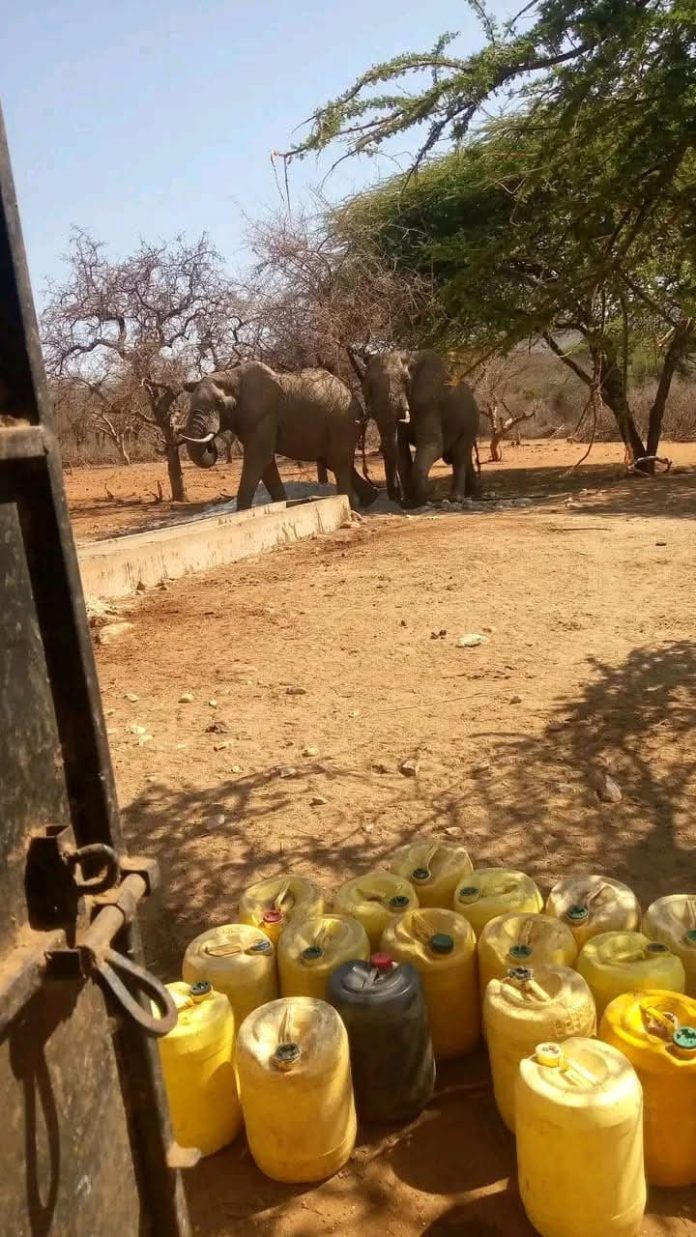Kajiado County is facing escalating human-wildlife conflicts as prolonged drought continues to dry up water sources and diminish pasture. The harsh conditions have forced wild animals to move closer to human settlements in search of food and water, leading to destructive encounters with local communities.
In Kajiado West, elephants were spotted in the KMQ area on September 23 after straying from their usual habitats. The animals are believed to have been drawn by the need for water, a clear sign of the worsening drought that has pushed wildlife into villages and grazing fields.
Meanwhile, in Kajiado South, youthful rancher Jonathan Ntiati suffered a heavy loss at the Imbirikani–Kuku Ward border when lions attacked his flock, killing close to 85 sheep and goats. The incident underscores the devastating toll of the drought, which has left predators with limited prey in the wild, forcing them to target livestock
ALSO READ:
Kitengela Traders to Benefit from New Market and Housing Projects
The two incidents mirror a broader crisis across Kajiado County, where water pans, seasonal rivers and grasslands have dried up. Residents now face mounting challenges of feeding their livestock and protecting them from wild animals, while also fearing for their own safety.
Conservationists and local leaders warn that unless urgent drought mitigation and relief measures are introduced, human-wildlife clashes will intensify. They have called for the establishment of water points for both animals and communities, stronger livestock protection strategies, and coordinated interventions between county authorities and wildlife agencies.
The drought, which has persisted for months, is threatening lives, livelihoods and biodiversity in Kajiado, raising alarm over the urgent need for sustainable water and resource management in the region.




